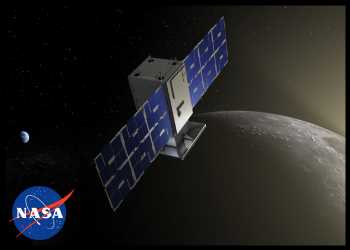Launch Of CAPSTONE Mission To Moon Delayed For System Checks
NASA has delayed the launch of a small cubesat to the moon to allow more time to perform final systems checks of its Rocket Lab booster for flight.
The mission, led by Advanced Space, was scheduled to launch aboard a Rocket Lab’s Electron rocket from the company’s Launch Complex 1 in New Zealand at 6 a.m. ET on Monday.
“NASA, Rocket Lab, and Advanced Space are standing down from the June 27 launch attempt for the CAPSTONE mission to the Moon to allow Rocket Lab to perform final systems checks,” the U.S. space agency said in a statement.
Teams are evaluating weather and other factors to determine the date of the next launch attempt, it added.
The next possible launch opportunity within the current period is on June 28. CAPSTONE’s trajectory design means that the spacecraft will arrive at its lunar orbit on Nov. 13 regardless of launch date within the current period, which offers launch opportunities every day through July 27.
The CAPSTONE mission, or the Cislunar Autonomous Positioning System Technology Operations and Navigation Experiment, aims to send a microwave oven-sized spacecraft weighing just 55 pounds to elliptical lunar orbit.
As a pathfinder for Gateway, a Moon-orbiting outpost that is part of NASA’s Artemis program, CAPSTONE will help reduce risk for future spacecraft by validating innovative navigation technologies and verifying the dynamics of this halo-shaped orbit.
CAPSTONE’s orbit also establishes a location that is an ideal staging area for missions to the Moon and beyond. The orbit will bring CAPSTONE within 1,000 miles of one lunar pole on its near pass and 43,500 miles from the other pole at its peak every seven days, requiring less propulsion capability for spacecraft flying to and from the Moon’s surface than other circular orbits.
After a four-month journey to its destination, CAPSTONE will orbit this area around the Moon for at least six months to understand the characteristics of the orbit.
The peer-to-peer information that determines CAPSTONE’s position in space will be used to evaluate its autonomous navigation software.
If successful, this software, referred to as the Cislunar Autonomous Positioning System (CAPS), will allow future spacecraft to determine their location without having to rely exclusively on tracking from Earth. This capability could enable future technology demonstrations to perform on their own without support from the ground and allow ground-based antennas to prioritize valuable science data over more routine operational tracking.
A successful CAPSTONE mission is expected to pave the way and expand opportunities for small and more affordable space and exploration missions to the Moon, Mars and other destinations throughout the solar system.
Source: Read Full Article



